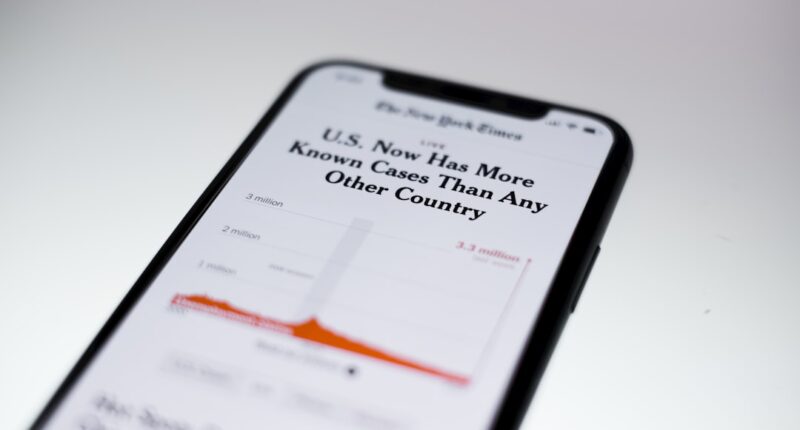Social media has become an integral part of our daily lives, with billions of people around the world using platforms such as Facebook, Instagram, Twitter, and Snapchat to connect with others, share experiences, and stay informed. While social media has undoubtedly revolutionized the way we communicate and interact, its impact on mental health has been a topic of much debate and concern. On one hand, social media has the potential to foster a sense of community and support, providing a platform for individuals to share their struggles and seek help. On the other hand, it has been associated with negative effects on mental health, such as increased feelings of loneliness, anxiety, and depression. In this article, we will explore the various ways in which social media can impact mental health, both negatively and positively, and provide strategies for using social media in a healthy way to promote mental well-being.
Key Takeaways
- Social media can have both negative and positive effects on mental health
- Negative effects of social media include increased feelings of anxiety, depression, and loneliness
- Positive effects of social media include providing support, connection, and access to mental health resources
- Strategies for using social media in a healthy way include setting boundaries, taking breaks, and curating a positive feed
- Social media platforms can play a role in promoting mental health awareness and providing resources for support
The Negative Effects of Social Media on Mental Health
The negative effects of social media on mental health are well-documented and have raised concerns among mental health professionals and researchers. One of the most significant negative impacts of social media is its potential to exacerbate feelings of loneliness and isolation. While social media platforms are designed to connect people, studies have shown that excessive use of these platforms can actually lead to feelings of loneliness and social isolation. This is often attributed to the phenomenon of “social comparison,” where individuals compare their lives to others’ highlight reels, leading to feelings of inadequacy and low self-esteem. Additionally, the constant exposure to curated and often unrealistic portrayals of others’ lives can contribute to a distorted perception of reality, leading to increased feelings of dissatisfaction and unhappiness.
Another negative effect of social media on mental health is its association with increased anxiety and depression. The constant exposure to negative news, cyberbullying, and the pressure to present a perfect image online can take a toll on individuals’ mental well-being. Studies have shown that heavy social media use is linked to higher levels of anxiety and depression, particularly among young people. The addictive nature of social media, with its endless scrolling and notifications, can also contribute to poor mental health outcomes, as it can lead to disrupted sleep patterns and decreased real-life social interactions. Overall, the negative effects of social media on mental health are a cause for concern and highlight the need for strategies to mitigate these impacts.
The Positive Effects of Social Media on Mental Health
While the negative effects of social media on mental health are well-documented, it’s important to recognize that social media also has the potential to have positive effects on mental well-being. One of the most significant positive impacts of social media is its ability to provide a sense of community and support for individuals facing mental health challenges. Social media platforms have become a space for individuals to share their experiences, seek advice, and connect with others who may be going through similar struggles. This sense of community can be particularly beneficial for individuals who may feel isolated or stigmatized in their offline lives, providing them with a supportive network that understands their experiences.
Additionally, social media can be a valuable source of information and resources for mental health support. Many organizations and individuals use social media to share educational content, raise awareness about mental health issues, and provide access to resources such as hotlines, support groups, and therapy services. This can be particularly beneficial for individuals who may not have access to traditional mental health services or who may feel more comfortable seeking help online. Furthermore, social media can be a platform for promoting positive mental health messages and self-care practices, encouraging individuals to prioritize their well-being and seek help when needed. Overall, while the negative effects of social media on mental health are a cause for concern, it’s important to recognize the potential for these platforms to have positive impacts as well.
Strategies for Using Social Media in a Healthy Way
| Strategy | Description |
|---|---|
| Limit Screen Time | Set a specific time limit for social media usage each day to avoid excessive screen time. |
| Engage in Offline Activities | Balance social media usage with offline activities such as exercise, hobbies, and spending time with friends and family. |
| Follow Positive Accounts | Curate your social media feed by following accounts that promote positivity, inspiration, and mental well-being. |
| Set Boundaries | Establish boundaries for when and where to use social media, such as avoiding it before bedtime or during meals. |
| Practice Mindfulness | Be mindful of your emotions and reactions while using social media, and take breaks when feeling overwhelmed or stressed. |
Given the potential for both negative and positive impacts on mental health, it’s important for individuals to use social media in a healthy way that promotes their well-being. One strategy for using social media in a healthy way is to set boundaries around its use. This can include limiting the amount of time spent on social media each day, designating specific times for checking social media, and taking regular breaks from these platforms. Setting boundaries can help individuals avoid the negative effects of excessive social media use, such as decreased real-life social interactions and disrupted sleep patterns.
Another strategy is to curate one’s social media feed to prioritize positive and uplifting content. Unfollowing accounts that promote unrealistic standards or make you feel inadequate can help create a more positive and supportive online environment. Instead, following accounts that promote body positivity, mental health awareness, and self-care can contribute to a more uplifting experience on social media. Additionally, engaging in meaningful interactions with others, such as sharing personal experiences, offering support to others, and participating in constructive discussions, can help foster a sense of community and connection on social media.
The Role of Social Media Platforms in Promoting Mental Health Awareness
Social media platforms have the potential to play a significant role in promoting mental health awareness and providing support for individuals facing mental health challenges. Many platforms have implemented features aimed at promoting mental well-being, such as crisis support resources, self-care tips, and tools for managing screen time. Additionally, social media platforms have become a space for organizations and individuals to raise awareness about mental health issues, share resources, and advocate for destigmatizing conversations around mental health.
Furthermore, social media platforms have the potential to reach a wide audience with mental health education and resources. Many organizations use these platforms to share information about common mental health conditions, provide tips for managing stress and anxiety, and offer access to support services. This can be particularly beneficial for reaching individuals who may not have access to traditional mental health resources or who may feel more comfortable seeking help online. Overall, social media platforms have the potential to be powerful tools for promoting mental health awareness and providing support for individuals facing mental health challenges.
Tips for Maintaining Mental Well-being While Using Social Media

While social media can have both negative and positive impacts on mental health, there are several tips that individuals can follow to maintain their well-being while using these platforms. One tip is to practice mindfulness while using social media by being aware of how certain content makes you feel and taking breaks when needed. This can help individuals avoid getting caught up in negative emotions or comparisons while using social media.
Another tip is to prioritize real-life connections and activities over time spent on social media. Engaging in face-to-face interactions with friends and loved ones, pursuing hobbies and activities that bring joy, and taking time away from screens can help individuals maintain a healthy balance between their online and offline lives. Additionally, seeking professional help when needed and being open about one’s struggles with trusted individuals can help individuals navigate the potential challenges of using social media while maintaining their mental well-being.
Balancing Social Media Use and Mental Health
In conclusion, social media has the potential to impact mental health in both negative and positive ways. While it can contribute to feelings of loneliness, anxiety, and depression, it also has the potential to foster a sense of community, provide support for individuals facing mental health challenges, and promote mental health awareness. By using strategies such as setting boundaries around social media use, curating one’s feed with positive content, and prioritizing real-life connections, individuals can use social media in a healthy way that promotes their well-being. Furthermore, social media platforms have the potential to play a significant role in promoting mental health awareness and providing support for individuals facing mental health challenges. By recognizing the potential impacts of social media on mental health and implementing strategies for healthy use, individuals can navigate these platforms in a way that supports their overall well-being.
Check out the latest article on seamless.blog for an in-depth analysis of the current political landscape. The article provides a comprehensive overview of the key issues and developments shaping the political discourse. Gain valuable insights and stay informed by clicking on the link in our bio.
FAQs
What is the article about?
The article is about a specific news story or topic related to Fox News. It may cover current events, political issues, or other newsworthy subjects.
Why is the link to Fox News included in the article?
The link to Fox News is included in the article to provide readers with the opportunity to access the original source of the news story or topic being discussed. This allows readers to verify the information and explore additional details from the source itself.
Is the article affiliated with Fox News?
The article may or may not be affiliated with Fox News. It depends on the specific publication or website hosting the article. It’s important for readers to verify the credibility and reliability of the source.
Can I trust the information from Fox News?
Fox News is a well-known news organization with a large audience. However, like all news sources, it’s important for readers to critically evaluate the information and consider potential biases. Fact-checking and seeking multiple sources can help ensure the accuracy of the information.





